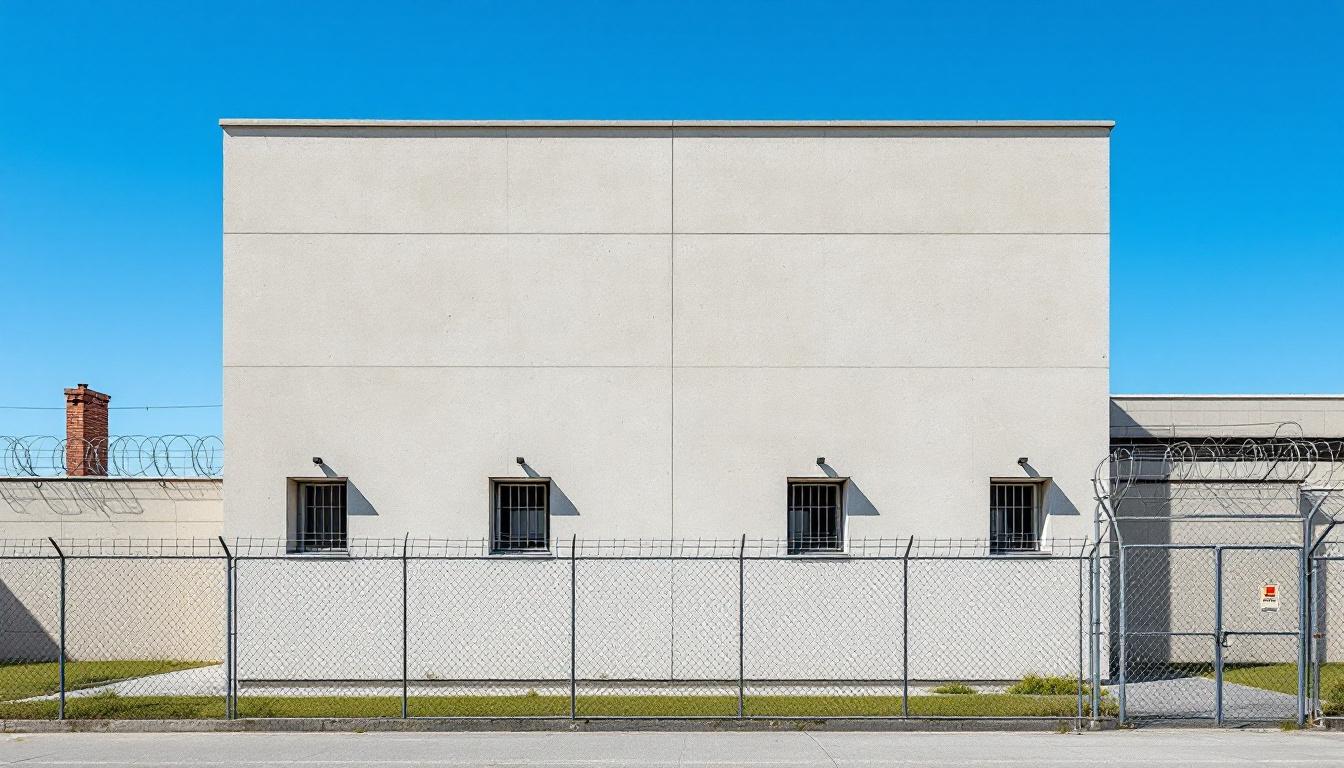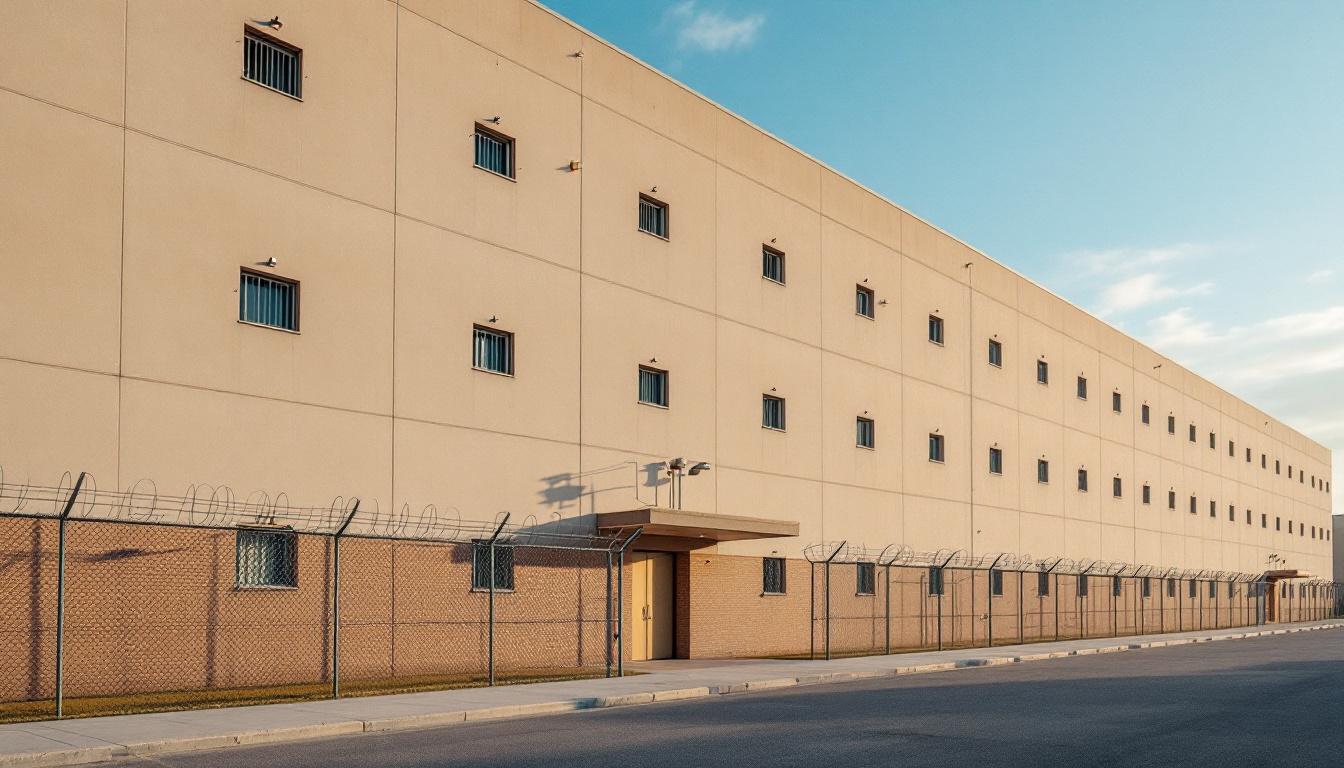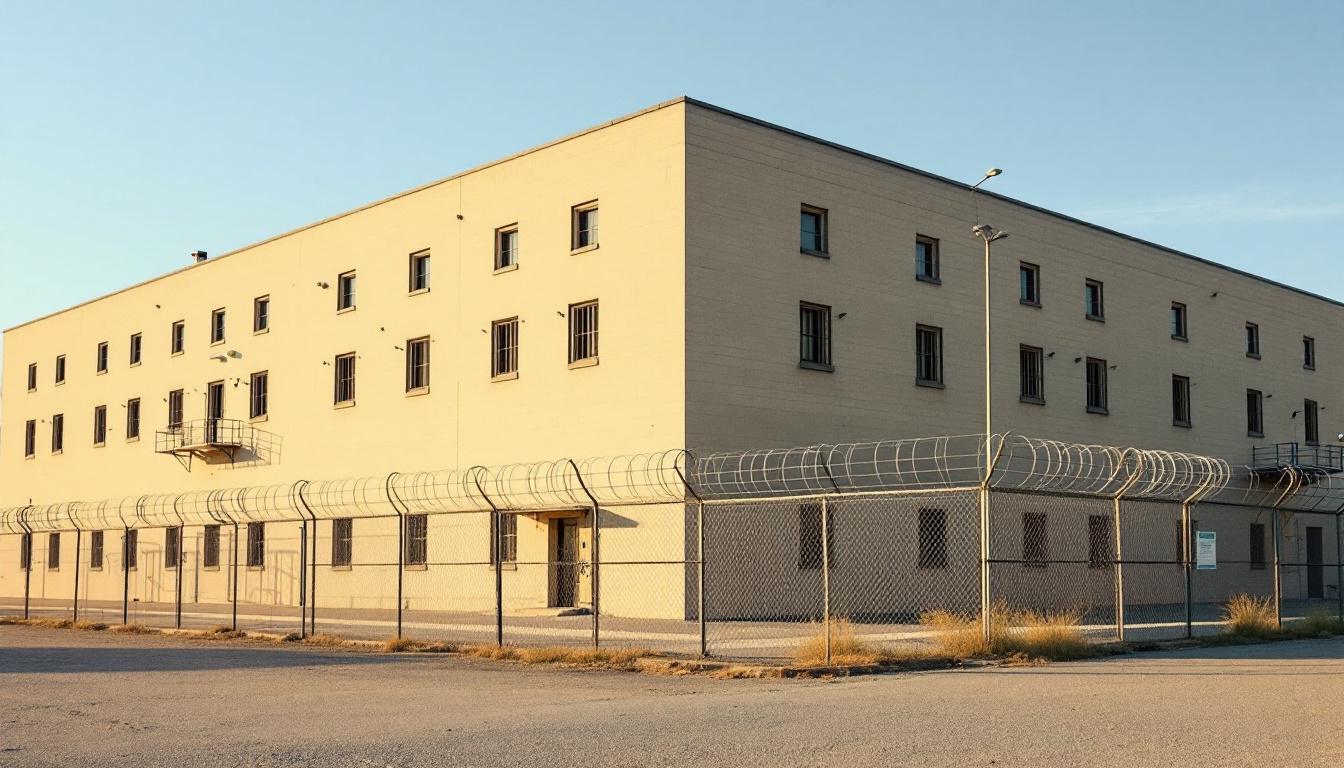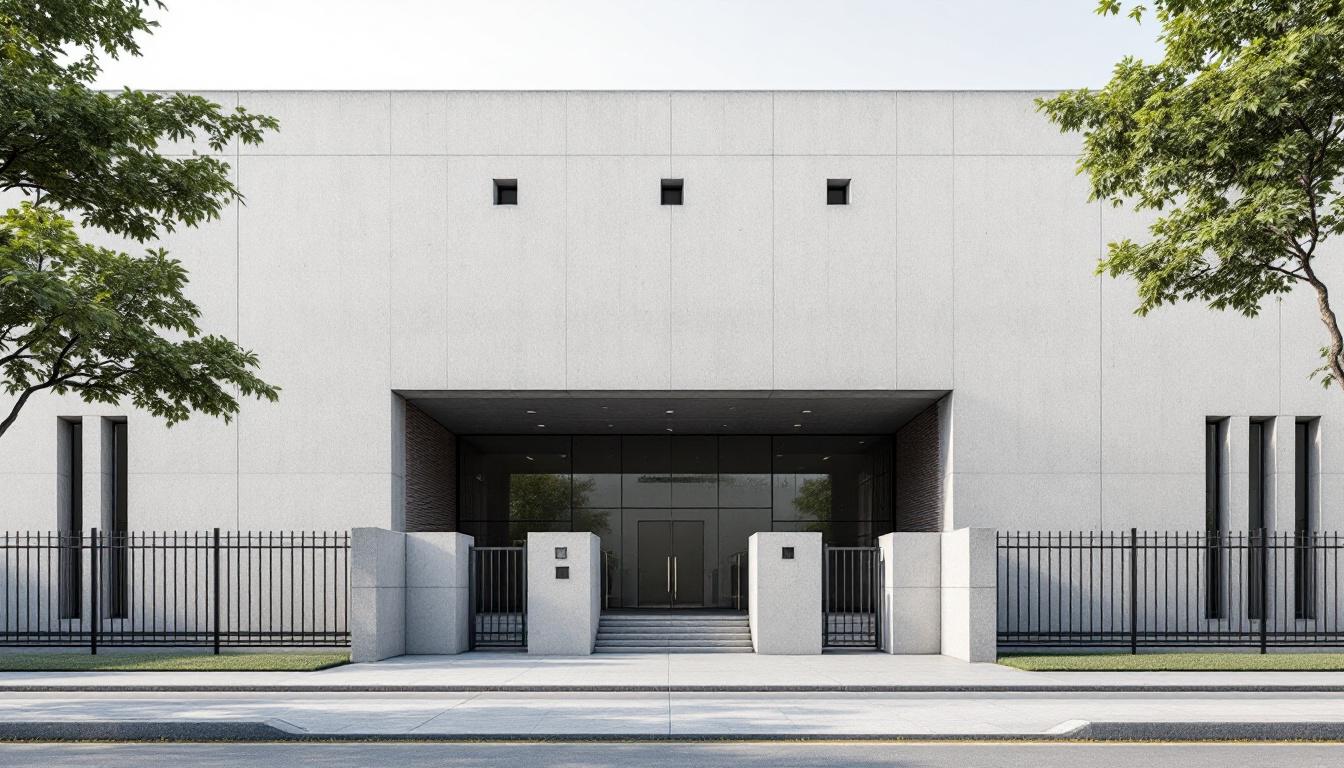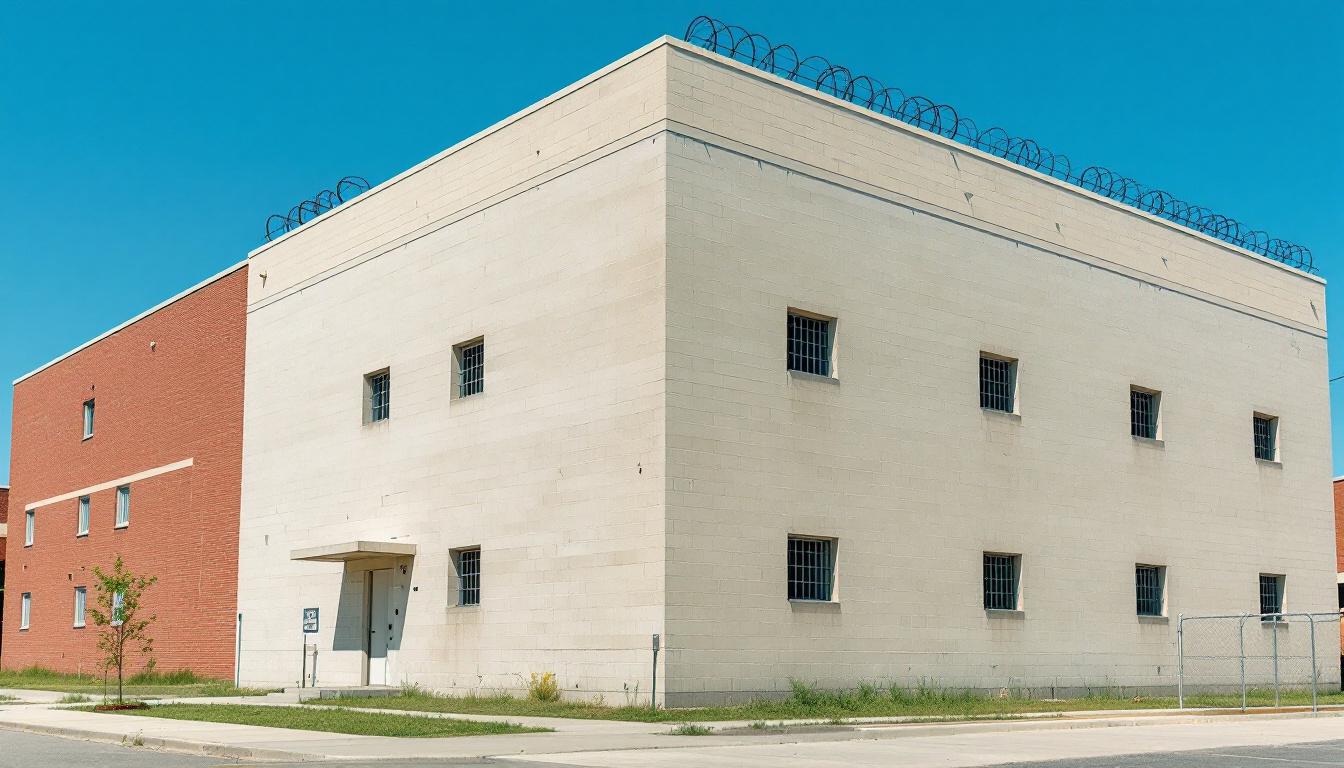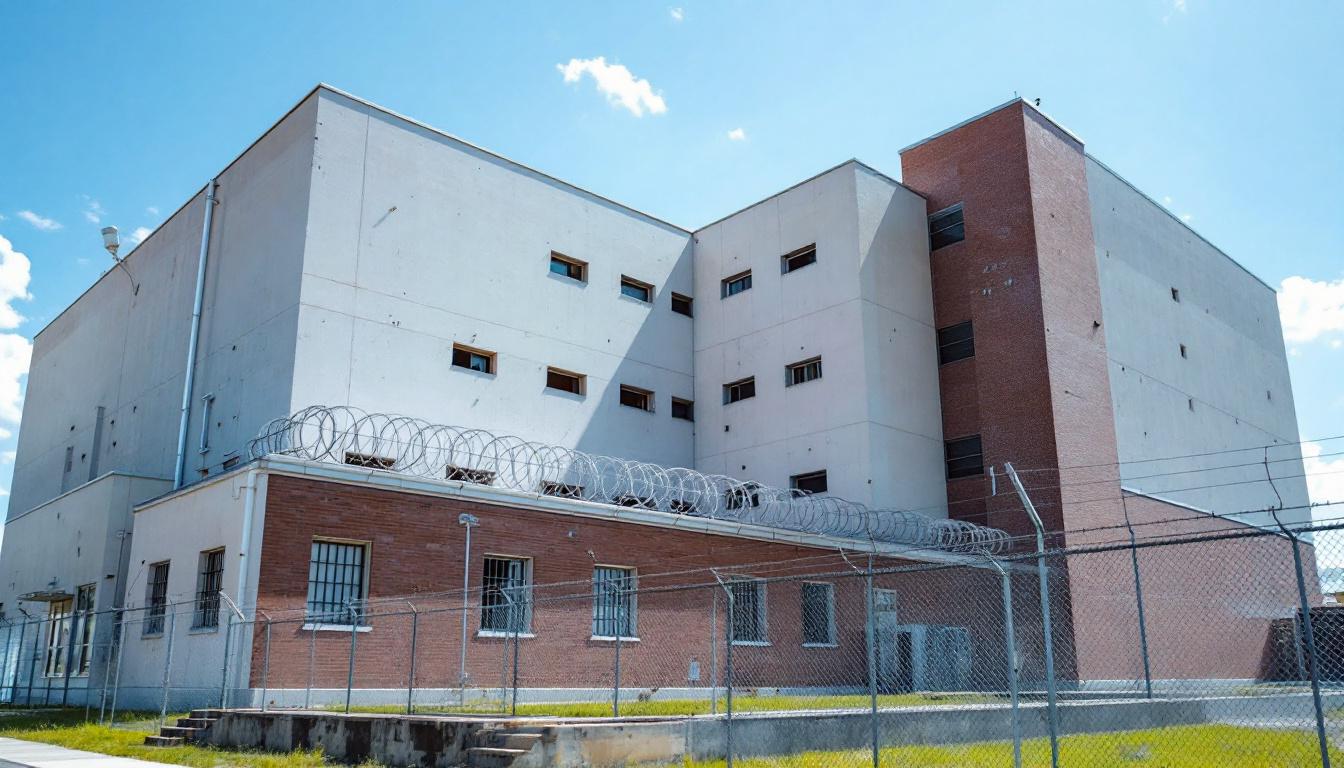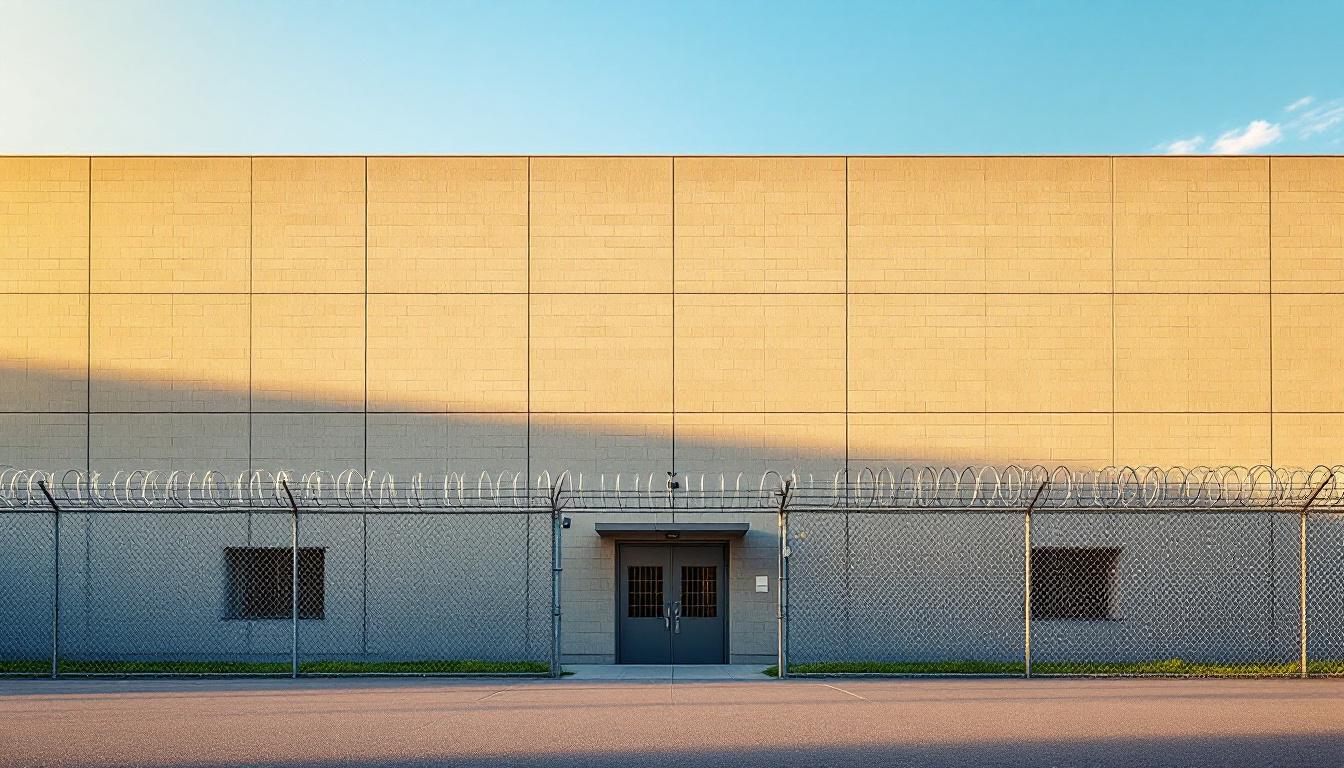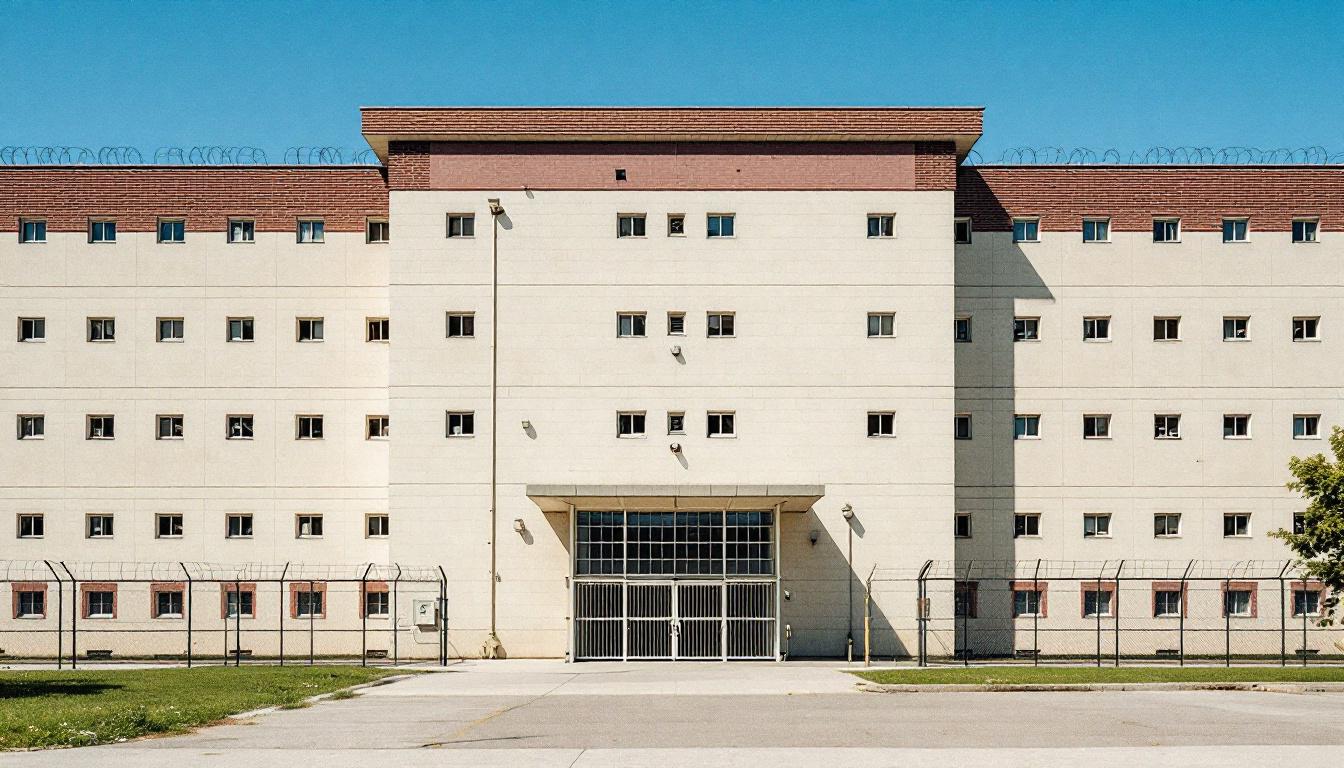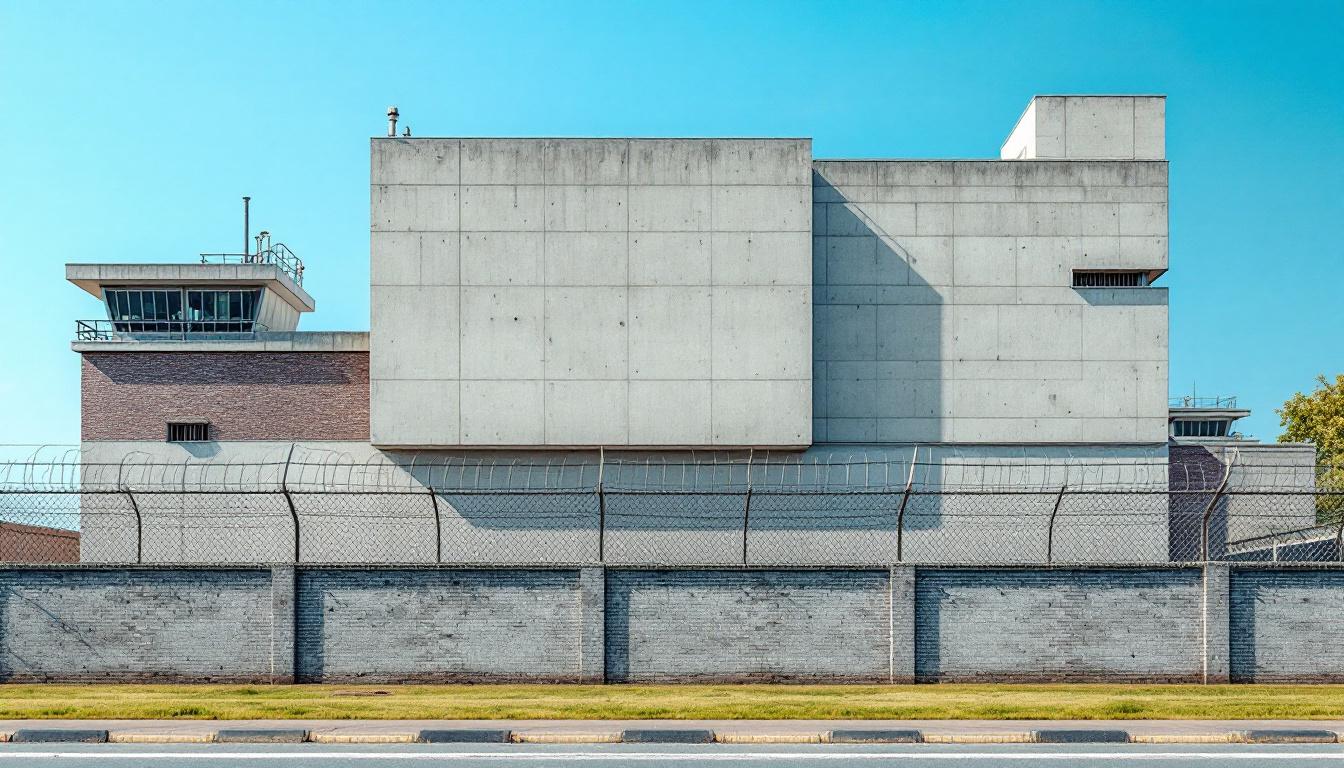
Quick Navigation
How to contact an inmate at Federal Correctional Institute - Pekin
This comprehensive guide will walk you through how to connect with an inmate at Federal Correctional Institute - Pekin. Follow the steps below to find an inmate and send letters and photos:
- Search for the inmate using our search tool below
- Create your account or log in to Penmate
- Write your message (up to 6,000 characters)
- Send instantly - inmates receive printed copies daily
Find an Inmate
Search for an inmate to start communicating today
Tip: You can search by first name, last name, or inmate ID number
To contact a person at Federal Correctional Institute - Pekin start by searching for the person on the official facility website. Perform a search by following these steps:
- Step 1: Enter their first name and last name into the search form and click "Search"
- Step 2: Locate their inmate record
- Step 3: Write down their Inmate ID and any housing information provided
Important! Be sure to enter the person's full name. Nicknames should not be used.
How to Send Messages to Inmates

You can use your phone or computer to send emails, letters, and photos to an inmate. Messages are sent electronically to inmate tablets or kiosks at the facility. If you would like to send a message, start by searching for an inmate at Federal Correctional Institute - Pekin.
Sending Photos and Postcards

A great way to send love and support to a loved one at Federal Correctional Institute - Pekin is to send photos and postcards. It only takes a few minutes to send photos from your phone and it makes a huge difference. You can also mail postcards with words of support and inspiration, or design your own postcard for special moments like birthdays and holidays.
Important! Be sure not to send any explicit photos or they may not be approved by the facility. You can also use a photo printing app like Penmate to make sure your photos are printed at the correct size (4x6 or 3x5) and are mailed according to the rules and regulations of Federal Correctional Institute - Pekin.
Frequently asked questions about Federal Correctional Institute - Pekin
-
How long does it take to deliver a message?
If you're sending an email message your letter is usually delivered within 24-48 hours. For messages sent via mail you should expect delivery within 3-7 days. All messages will need be approved by Federal Correctional Institute - Pekin.
-
How much does it cost to send a message to Federal Correctional Institute - Pekin?
You can send a message free using your phone or mail a message via USPS for the price of a $0.60 stamp and envelope. You can also purchase credits or e-stamps from services starting at $1.99.
-
What services can I use to contact an inmate at Federal Correctional Institute - Pekin?
Penmate
You can use Penmate to send letters and photos to an inmate from your phone. It's an easy way to stay in touch during your loved one's incarceration. Use the inmate locator to find an inmate's location and contact information, then you can send messages within a few minutes.
Securus messaging
Securus may be another option for communicating with an inmate at Federal Correctional Institute - Pekin. You can create a friends and family account and purchase credits to send messages. All messages will be reviewed and must be approved by the facility.
JPay
Some county jails and state prisons may support sending messages with JPay. You must register an account with the system, find your loved one, and purchase stamps to send messages. For some locations you can also attach photos.
Smart Jail Mail
You may also check if Smart Jail Mail is available at Federal Correctional Institute - Pekin. Smart Jail Mail is operated by Smart Communications and has contracted with some state and county jails. After purchasing credits, your messages and photos are sent to the facility, printed out, and then handed out to your loved one.
-
What is the mailing address of Federal Correctional Institute - Pekin?
Mailing address:
Federal Correctional Institute - Pekin
2600 2nd St
Pekin, IL 61554
Phone: (309) 346-8588Business hours:
- Monday: Open 24 hours
- Tuesday: Open 24 hours
- Wednesday: Open 24 hours
- Thursday: Open 24 hours
- Friday: Open 24 hours
- Saturday: Open 24 hours
- Sunday: Open 24 hours
-
What are the visiting hours at Federal Correctional Institute - Pekin?
Visiting hours at Federal Correctional Institute - Pekin vary by housing unit and security level. Generally, visits are scheduled on weekends and holidays, with some facilities offering weekday visits. Contact the facility directly at (309) 346-8588 or check their website for the current visiting schedule. Visits typically last 30-60 minutes and must be scheduled in advance.
-
What items are prohibited when sending mail to Federal Correctional Institute - Pekin?
Prohibited items typically include: cash, personal checks, stamps, stickers, glitter, glue, tape, staples, paperclips, polaroid photos, musical or blank greeting cards, hardcover books, magazines with staples, and any items containing metal or electronics. Only send letters on plain white paper with blue or black ink. Photos must be printed on regular photo paper (no Polaroids). Always check with Federal Correctional Institute - Pekin for their specific mail policies.
-
How do I send money to an inmate at Federal Correctional Institute - Pekin?
You can send money to an inmate at Federal Correctional Institute - Pekin through several methods: 1) Online using JPay, Access Corrections, or the facility's approved vendor, 2) Money orders mailed directly to the facility with the inmate's name and ID number, 3) Kiosks located in the facility lobby, or 4) Over the phone using a credit or debit card. Fees vary by method, typically ranging from $2.95 to $11.95 per transaction.
-
Can I schedule a video visit with an inmate at Federal Correctional Institute - Pekin?
Many facilities now offer video visitation as an alternative to in-person visits. At Federal Correctional Institute - Pekin, video visits may be available through services like Penmate, Securus Video Connect, GTL, or ICSolutions. Video visits typically cost $10-20 for 20-30 minutes and must be scheduled in advance. You'll need a computer or smartphone with a camera and reliable internet connection. Contact the facility for their specific video visitation policies and approved vendors.
-
What identification do I need to visit an inmate at Federal Correctional Institute - Pekin?
All visitors must present valid government-issued photo identification such as a driver's license, state ID, passport, or military ID. Minors must be accompanied by a parent or legal guardian who can provide the minor's birth certificate. Some facilities require visitors to be on the inmate's approved visitation list, which may require a background check. Contact Federal Correctional Institute - Pekin for specific ID requirements and visitor approval procedures.
-
How can I find out an inmate's release date?
To find an inmate's release date at Federal Correctional Institute - Pekin, you can: 1) Use the online inmate search tool if available, 2) Call the facility's records department, 3) Contact the inmate's case manager or counselor, or 4) Have the inmate provide this information during a call or visit. For privacy reasons, some facilities only release this information to immediate family members.
Facility Overview
Contact Information
Federal Correctional Institute - Pekin2600 2nd St
Pekin, IL 61554
Phone: (309) 346-8588
Official Website

About Federal Correctional Institute - Pekin
Serving the federal correctional system's mission of secure custody and rehabilitation programming, FCI Pekin operates as a key component within Illinois's broader network of correctional institutions. Located in the historic city of Pekin along the Illinois River, this federal facility typically houses individuals serving sentences for various federal offenses while maintaining the security protocols and structured environment essential to effective correctional operations. The facility's position within central Illinois places it strategically within the Midwest region's correctional infrastructure, often facilitating family connections and community reintegration efforts for those incarcerated services throughout the area.
The collaborative approach between custody staff, program coordinators, and support personnel generally focuses on maintaining institutional safety while providing opportunities for personal development and skill building. FCI Pekin may offer various educational programs, vocational training opportunities, and substance abuse treatment services that align with federal standards for correctional programming. These initiatives typically work together to address the diverse needs of the incarcerated population, with programming often designed to support successful community reentry upon release.
As an IL correctional facility operating under federal oversight, the institution generally maintains connections with local community organizations and may coordinate with regional service providers to enhance programming effectiveness. The facility's role extends beyond simple containment, typically emphasizing structured daily routines, work assignments, and rehabilitative services that contribute to both institutional order and individual growth opportunities for those in custody.
Programs & Services
Those incarcerated at FCI Pekin encounter a comprehensive framework of developmental opportunities designed to foster personal transformation and facilitate successful community reintegration. The facility's approach emphasizes structured growth through evidence-based programming that addresses educational deficits, vocational skill gaps, and personal development needs. Within this secure environment, participants may access a carefully curated selection of offerings that prioritize both individual advancement and institutional safety, creating pathways for meaningful change during the period of incarceration.
Educational and vocational opportunities typically form the cornerstone of personal development at the facility. Those incarcerated may engage with adult basic education services that address fundamental literacy and numeracy skills, while financial literacy programming often provides essential knowledge for post-release economic stability. Moreover, vocational programs may furnish hands-on training in various trade skills, allowing participants to develop marketable competencies that enhance employment prospects upon reentry into the community.
Therapeutic and support services complement the educational framework through targeted interventions addressing mental health and reentry preparation needs. Mental health treatment and counseling services are typically available to those who may benefit from professional psychological support, fostering emotional stability and coping strategies within the structured institutional environment. Furthermore, reentry preparation offerings often include comprehensive planning assistance that helps participants develop realistic post-release goals and connect with community resources, thereby strengthening the foundation for successful reintegration while maintaining the security protocols essential to facility operations.
Daily Life & Visitation
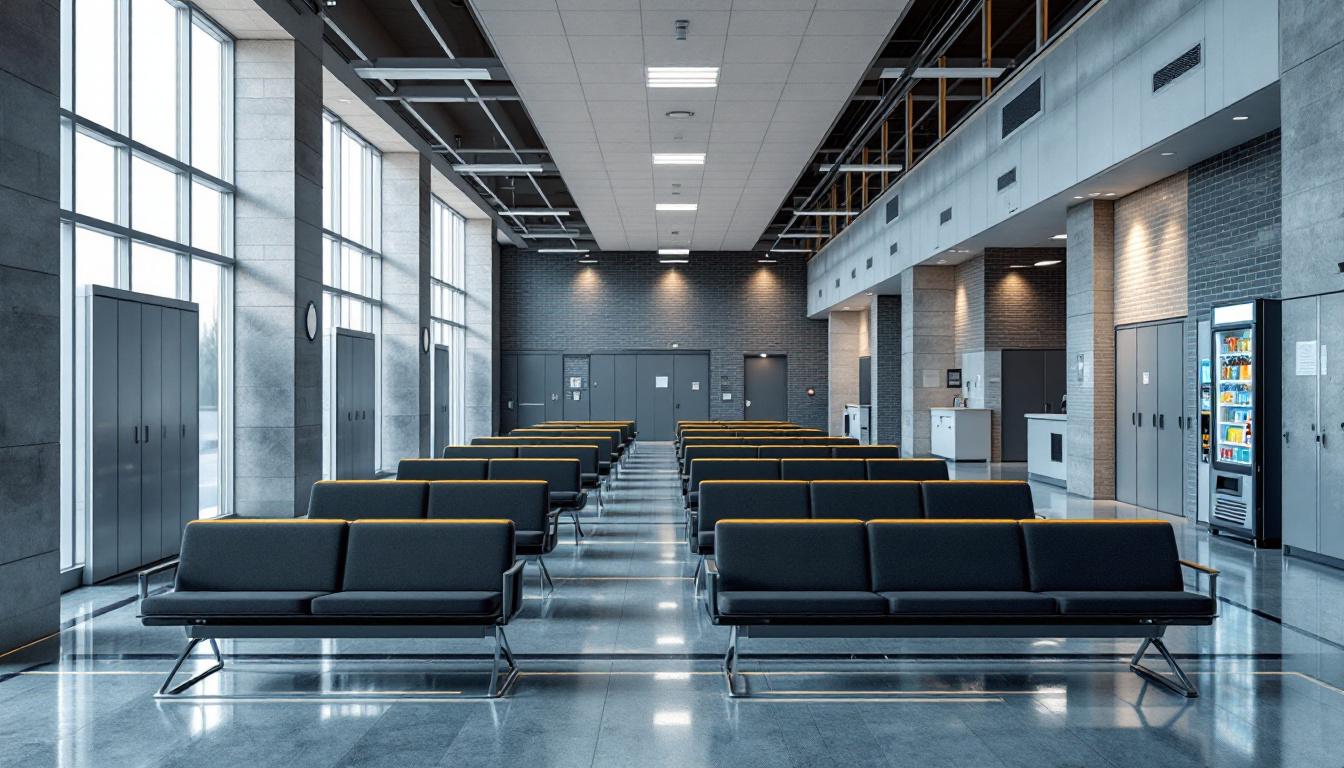
Strong bonds with family members and fellow residents form the cornerstone of community life for those incarcerated at FCI Pekin, where maintaining meaningful relationships often provides essential emotional support throughout their time at the facility. The structured environment currently operates on a predictable schedule that begins with early morning counts and continues to revolve around work assignments, educational programming, and recreational activities that furnish opportunities for social interaction and personal development. Those incarcerated typically find that the consistent routine, while restrictive, generally allows them to establish connections with others who share similar backgrounds or interests, creating informal support networks that help navigate the challenges of incarceration.
Living accommodations at the facility generally consist of housing units that may include dormitory-style arrangements or smaller rooms, where those incarcerated typically share space with one or more individuals. Moreover, the dining arrangements usually involve scheduled meal times in common areas, providing regular opportunities for social interaction and community building among residents from different housing units. Whereas privacy remains limited, these shared spaces often become venues where those incarcerated can maintain friendships, participate in informal discussions, and support one another through daily challenges and personal growth efforts.
The facility typically offers various recreational activities that may include organized sports, fitness programs, and hobby groups that help those incarcerated stay physically active while building positive relationships with their peers. Moreover, structured programming schedules generally encompass educational courses, vocational training, and counseling sessions that furnish valuable skills while creating additional opportunities for meaningful social connections. Communication with family members and loved ones continues to be supported through visitation policies that usually allow regular contact, along with telephone and correspondence privileges that help those incarcerated maintain crucial outside relationships that often serve as motivation for successful reintegration into their communities upon release.
Ready to Connect?
Start communicating with your loved one today
Search for an Inmate

